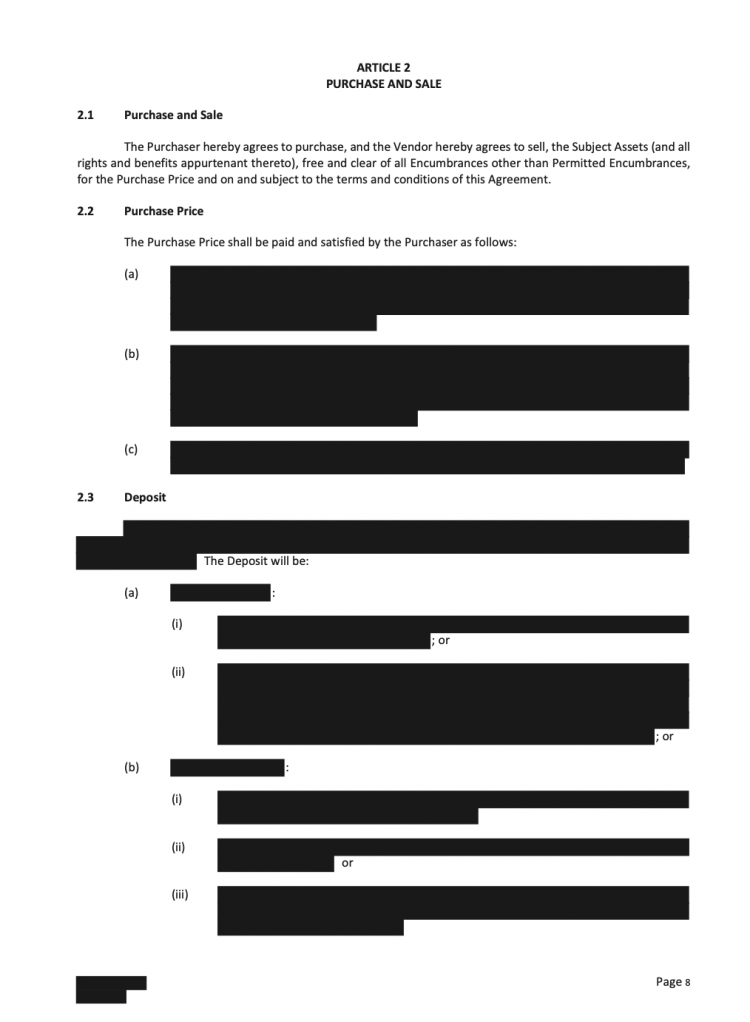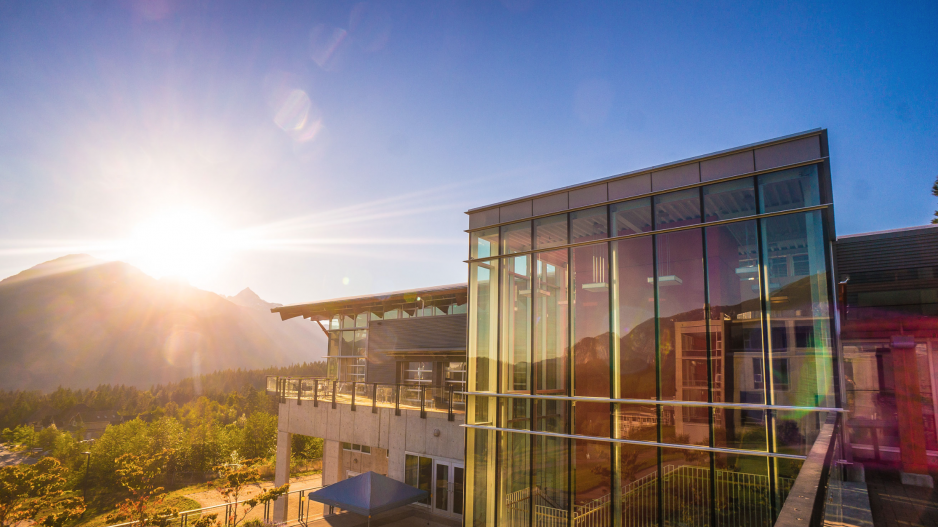The purchase price for Quest University’s campus has been censored from a contract released by Capilano University.
On Aug. 16, NDP Post-Secondary Education and Future Skills Minister Selina Robinson appeared in Squamish to announce the province had provided $48 million to Capilano for its $63.2 million purchase of the 18-acre campus.
Quest suspended operations in April. Capilano plans to reopen the former private university next year.
Under the freedom of information law, Capilano released three heavily redacted agreements. The North Vancouver university’s risk management and privacy officer Jacquetta Goy said “redactions have been applied on the grounds of disclosures harmful to the business interests of a third party … and on the grounds of disclosures harmful to personal privacy.”
“We are not able to provide you with correspondence related to the contract as requested as it is excluded on the grounds of solicitor-client privilege,” Goy wrote.
Adjudicators with the Office of the Information and Privacy Commissioner and sa国际传媒 Supreme Court judges have repeatedly decided in favour of disclosing contracts between public bodies and private entities.

“We’re looking at an expenditure of around $100 million — $60 million for the campus and Capilano has options to buy four residences which will be at least another $40 million,” said researcher Vivian Krause, who has analyzed the history and taxation implications of Quest land deals. “It’s shocking to see such a heavily redacted document, it’s shocking to see dates and amounts blacked out, it’s shocking to see the names of law firms blacked out."
One of the documents, called the Superseding Purchase Agreement for the Quest Campus Lands, is between nominee Primacorp, beneficial owner New Quest Land Holdings LP and Capilano University, the purchaser.
New Quest, registered in 2016 and formerly known as Vancouver Career College LP, is another of Primacorp chair Peter Chung’s companies.
Primacorp paid $43 million for the land and university buildings to rescue Quest out of court protection from creditors in December 2020 and agreed to provide student recruitment, marketing and fundraising services for Quest. Quest’s biggest lender, the Vanchorverve Foundation, had demanded repayment of $23.4 million at the start of 2020.
Definitions of deposit holder, deposit, Excise Tact Act, purchase price and the related payment schedule were blacked-out in the freedom of information return. So were the Quest chattels, or equipment, machinery, furnishings, inventory or supplies in which the vendor and/or nominee has any right or claim, pursuant to the lease.
On another document, an agreement about assignment and novation, Capilano blacked-out the assignor’s name and the names and signatures of the parties.
That contract refers to an original agreement of purchase and sale made March 30, 2023 between Primacorp, New Quest and the secret assignor. The only hint about the identity of the assignor is that it is incorporated under Alberta laws.
The supplemental “Amended and Restated Agreement to Assign Purchase Contract,” included the nine-digit property identifier for the entire 55.67 acre Quest property. sa国际传媒 Assessment Authority valued it at $88.9 million in July of 2022. The assessment authority’s database said the most-recent transaction was Aug. 9 and worth $60.88 million. That is close to the price announced by the province a week later.
“Taxpayers deserve to know who is getting the tens of millions of dollars the government is spending in Squamish,” Krause said. "Government should provide an unreacted copy of this agreement, if there is nothing to hide, why is the information blacked out?”
The deal announced last month did not include the student dormitory buildings. A spokesperson for Robinson said the government was looking at an opportunity to acquire the student housing buildings, which would accommodate 450 beds.
“Further feasibility analysis about this potential acquisition will be required,” said a statement from the ministry.
While Primacorp owns the land under the four vacant buildings, the buildings that contain 416 student residential units belong to the company that built them, Southern Star Developments.
In an affidavit in November 2020, Southern Star president Michael Hutchison said his company spent $41.7 million to build the residences specifically for student use, with financing from a Bank of Montreal mortgage.



